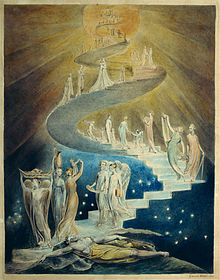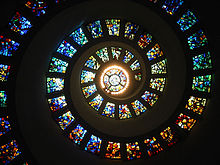Select an Action
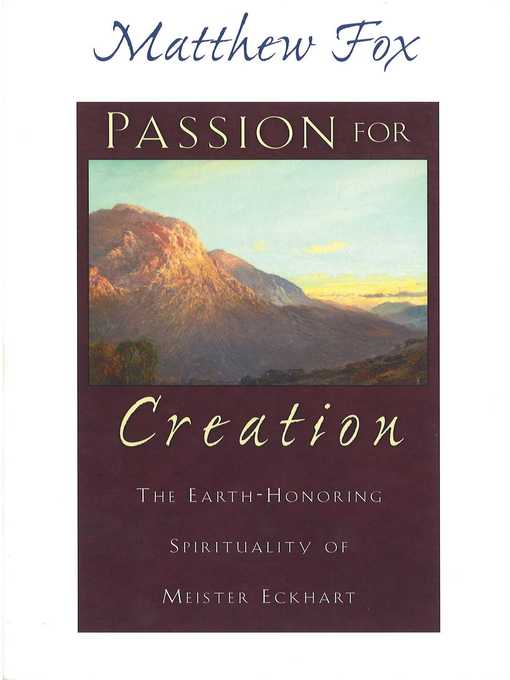
Passion for Creation
The Earth-Honoring Spirituality of Meister Eckhart
AUTHOR:
Fox, Matthew
SUBJECT:
New Age
Religion & Spirituality
Nonfiction
DESCRIPTION:
• Matthew Fox's comprehensive translation of Meister Eckhart's sermons is a meeting of true prophets across hundreds of years that results in a spirituality for the new millennium.
• A brilliant interpretation of Eckhart's teachings on creation spirituality. Passion for Creation (formerly Breakthrough) is Matthew Fox's comprehensive translation of and original commentary on the critical German and Latin texts of 37 sermons by Meister Eckhart, the noted 14th-century Dominican priest, preacher, and mystic.
The goodness of creation,
the holiness of all things,
the divine blood in each person,
the need to let go and let be
—these are among Eckhart's themes,
themes that the best-selling author Matthew Fox brilliantly interprets and explains for today's reader.
Passion for Creation will be embraced by theologians, students, and all seekers of truth.
It will be especially welcomed by those interested in creation spirituality, which Eckhart advocated six centuries ago and which Matthew Fox has promoted as a spiritual path for the new millennium.
Simply put, this book is a meeting of two prophets across hundreds of years. The outcome of that meeting is a fount of wisdom.
PUBLISHER:
Inner Traditions
Inner Traditions/Bear & Company
PERIOD_DATE:
2000/01/01
ERC_FORMAT:
HTML
Adobe EPUB
LANGUAGE:
English
PUBLISHER:
Inner Traditions
Inner Traditions/Bear & Company
PERIOD_DATE:
2000/01/01
ERC_FORMAT:
HTML
Adobe EPUB
LANGUAGE:
English
===
Robert A. Cathey
5.0 out of 5 stars Matthew Fox Guides Readers into Insights from the mystic Meister Eckhart
Reviewed in the United States on 14 July 2019
Working with an expert in medieval church Latin and Middle High German, Fox presents new translations of over 30 of Eckhart's sermons (and a passage from one of his theological treatises), organized around four headings: the Positive Way; the Negative Way; the Creative Way; the Transformative Way. Fox shows how Eckhart's approach to mysticism makes it more accessible to ordinary seekers and believers who want to go deeper in our spiritual lives without fleeing into a monastery.
Eckhart was truly a revolutionary in his times, championing women-centered religious movements and declaring all persons were aristocrats (over against the wealthy merchants of Cologne).
His notion that 'the new birth' unites our souls to God in a manner associated only with Christ's union with divinity is still revolutionary and controversial.
According to Fox,
if Eckhart had received the attention later afforded to Luther,
Christianity would have been set on a more positive basis in regard to how human nature and potential are valued,
over against Augustine's novel and influential doctrine of 'original sin.'
The book provides over a month of sermons and commentaries for serious study, daily spiritual reading, or a crash course in reasons for seeking a deeper live in God for seekers and believers today.
3 people found this helpful
Donald M. Joy
5.0 out of 5 stars PERSISTENT BLESSING
Reviewed in the United States on 9 September 2015
Verified Purchase
Matthew Fox first wrote Original Blessing, insisting that God's original creation was all blessing, and with Augustine the the concept of 'original sin" originated.
I feasted on Meister Eckhart's sermons and the commentary and discussion of each sermon. There seem to be endless sermons, and when I found I had "finished the book" I was shocked with sadness.
Reading the sermons and commentary was my daily "reset" for meditation with blessing and wrapping all of my concerns with blessings and enveloping all of my concerns with blessing and embracing those people with with present, past, and continuing affirmation and inclusion.
4 people found this helpful
The Book Worm
5.0 out of 5 stars The "inness" of God
Reviewed in the United States on 7 September 2012
Verified Purchase
I recommend this book for anyone who has ever contemplated questions such as, "Why am I here?" What is the purpose of my life?"
And, yes, for those of us who still, in this non-believing time ask, "Where is God?"
Fox's contemplation of the sermons this little-known theologian from the 14th c. reveals a message that especially illuminates our time. Like ours, the 14th c. was an age of degradation, disillusionment and the corruption of society's basic institutions.
Eckhart, a scriptural scholar trained in Scholastic theology, explains in simple language, the relationship of an eternal, creating God with all creation.
In his words, the relationship is an "inness" of all creation in and with God.
There is no God "out there." And since the very being of God is the act of creating, we are invited to share this act.
This mystical insight powerfully links Christianity with other great religious and philisophical traditions. Eckhart argues that it is our destiny to seek "compassion," which he defines as comprised of 2 parts: love and justice.
Eckhart believe this is the elegant message of Torah and the Gospels. I found Fox's introduction to the material sophisticated, but always easily understood and compelling, as are the sermons themselves.
The one criticism I would note is that the Kindle version has numerous punctuation and spelling errors, which can be a distraction.
Read less
8 people found this helpful
Nonformal Educator
3.0 out of 5 stars Overkill
Reviewed in the United States on 2 August 2021
Verified Purchase
Way too much information - 600 pages worth. It was difficult to glean out the several good messages I was able to find.
Report abuse
See all reviews
===
Nick Mather added it
In this series of translations of Eckhart's sermons followed by commentaries on them, Matthew Fox clearly demonstrates Eckhart's relevance in the 21st century. I agree that Eckhart provides a much needed alternative to Christianity as it is practiced today, that is still within the Christian tradition. A very inspirational work. (less)
flagLike · comment · see review
Lenny
Jul 29, 2009Lenny rated it it was amazing
Fox may be a quack. He may also be a genius. In either case, Eckhart was a saint. LOVED the full versions of the sermons offered in this book. The translations are fresh and startling. Whether they are all together faithful to the old German, I can't say. (less)
flagLike · comment · see review
--
Nick Mather added it
In this series of translations of Eckhart's sermons followed by commentaries on them, Matthew Fox clearly demonstrates Eckhart's relevance in the 21st century. I agree that Eckhart provides a much needed alternative to Christianity as it is practiced today, that is still within the Christian tradition. A very inspirational work. (less)
Lenny
Jul 29, 2009Lenny rated it it was amazing
Fox may be a quack. He may also be a genius. In either case, Eckhart was a saint. LOVED the full versions of the sermons offered in this book. The translations are fresh and startling. Whether they are all together faithful to the old German, I can't say. (less)

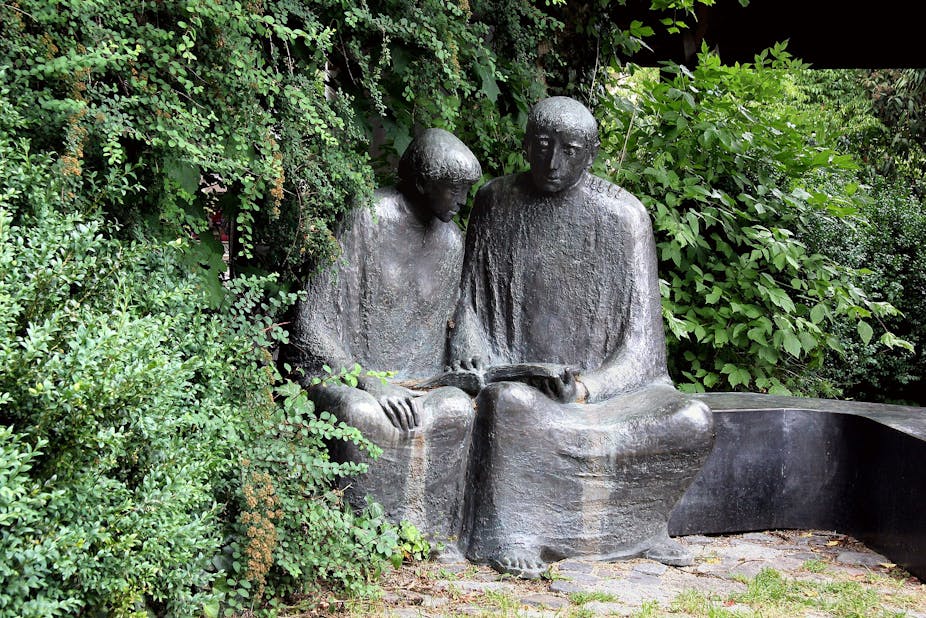 A sculpture of Meister Eckhart in Germany.
A sculpture of Meister Eckhart in Germany. 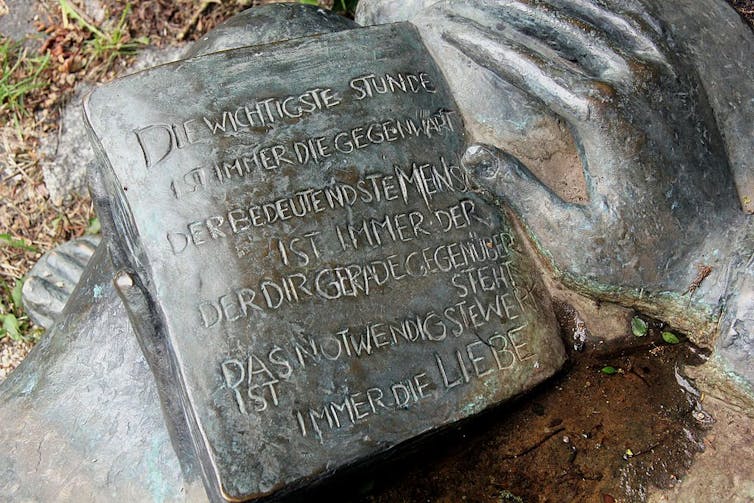 A sculpture of Meister Eckhart in Germany.
A sculpture of Meister Eckhart in Germany. 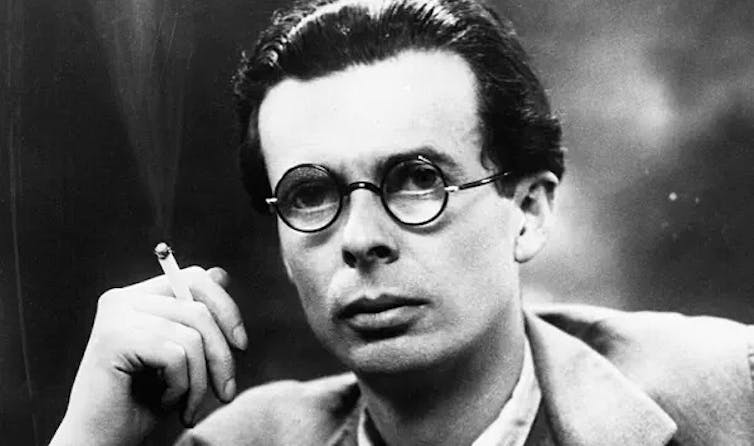 Novelist Aldous Huxley frequently cited Eckhart, in his book, ‘The Perennialist Philosophy.’
Novelist Aldous Huxley frequently cited Eckhart, in his book, ‘The Perennialist Philosophy.’ 






















